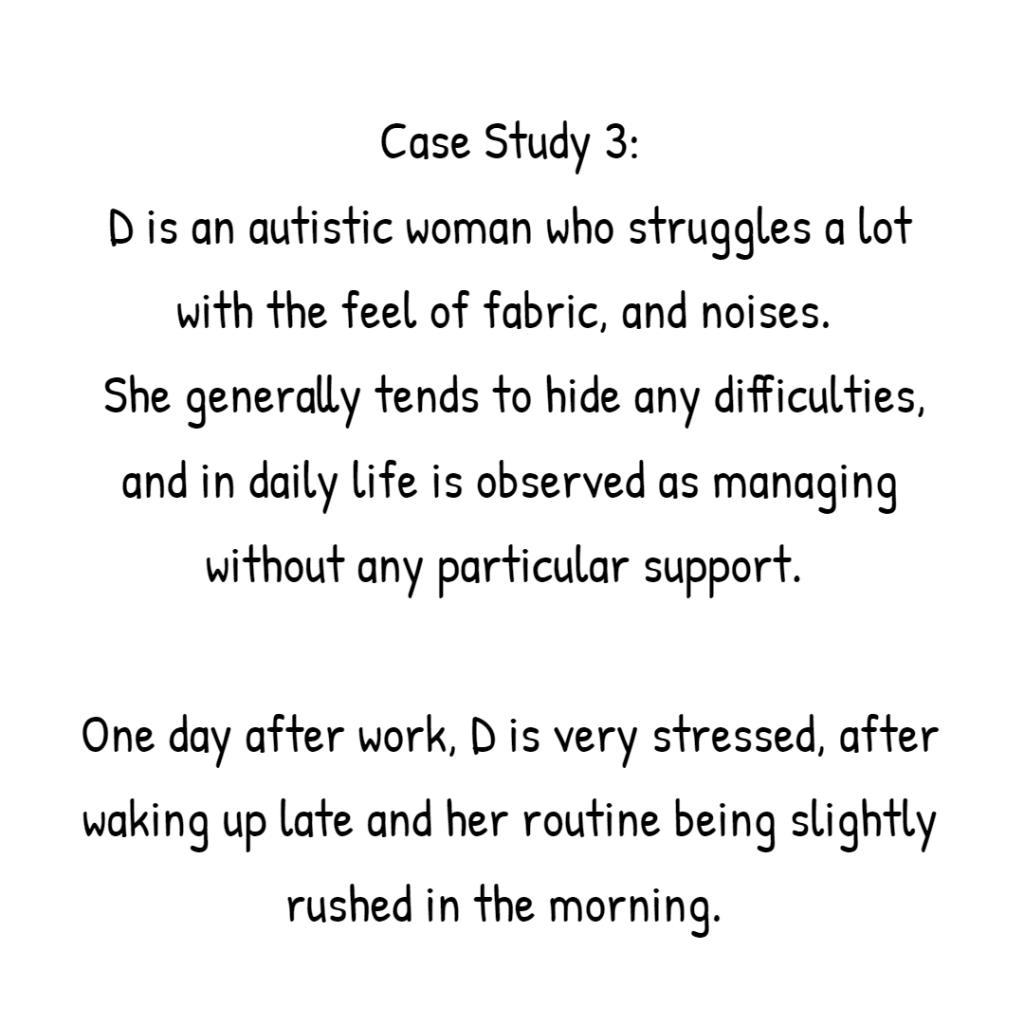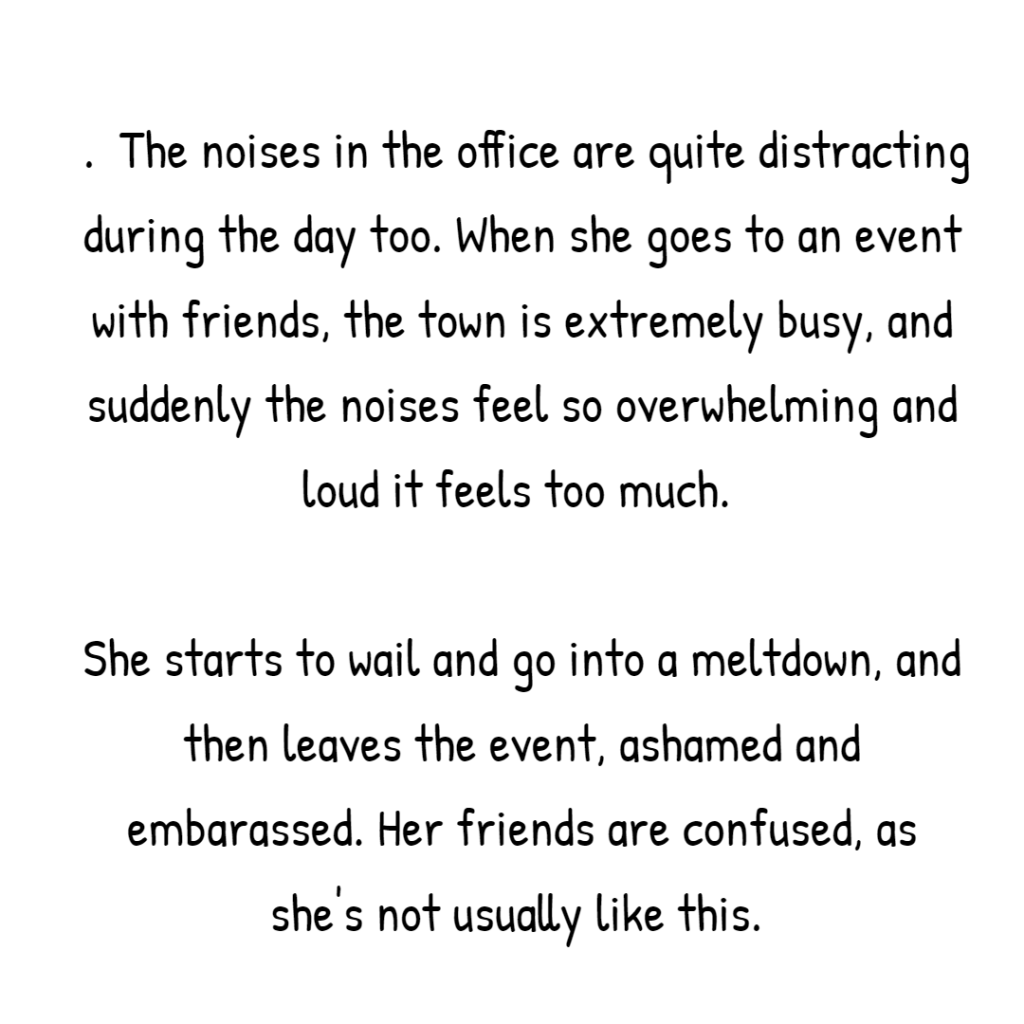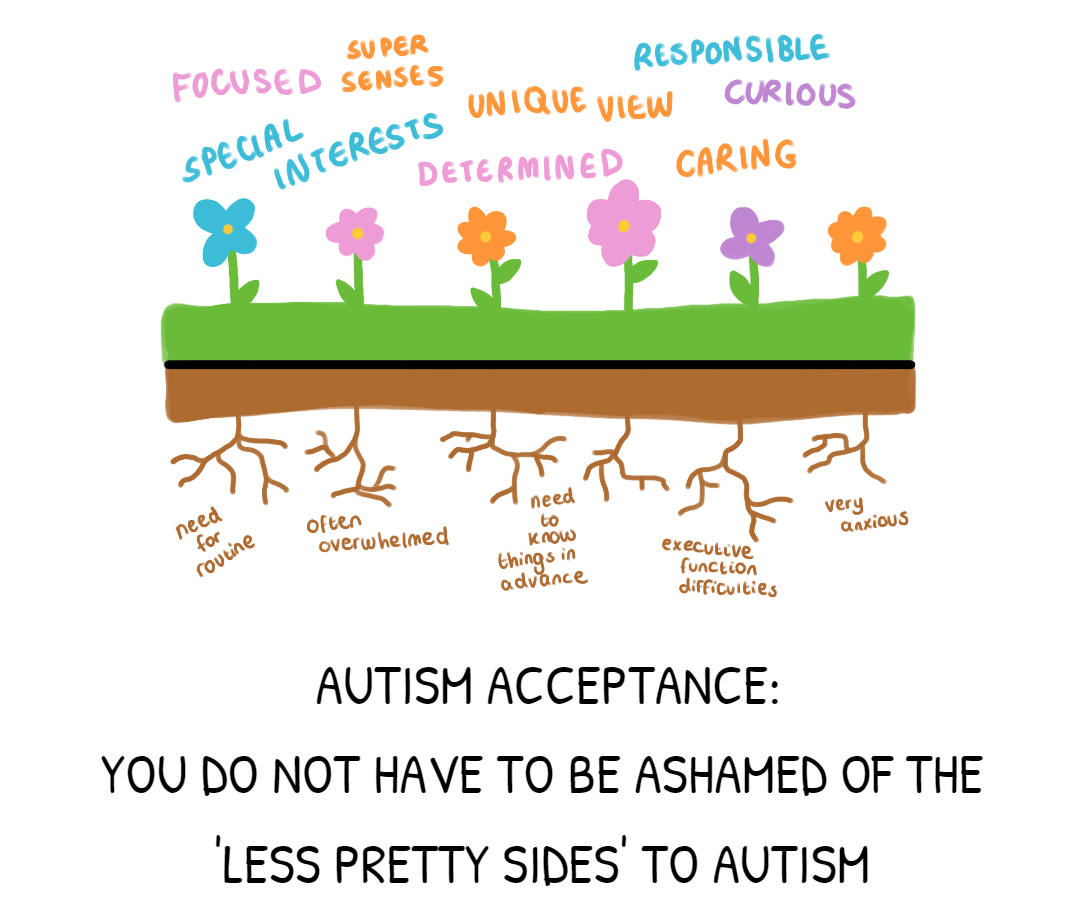Case study 3 for autism acceptance month!!
D is an autistic woman who struggles a lot with the feel of fabric, and noises. She generally tends to hide any difficulties, and in daily life is observed as managing without any particular support. One day after work, D is very stressed, after waking up late and her routine being slightly rushed in the morning. The noises in the office are quite distracting during the day too. When she goes to an event with friends, the town is extremely busy, and suddenly the noises feel so overwhelming and loud it feels too much. She starts to wail and go into a meltdown, and then leaves the event, ashamed and embarassed. Her friends are confused, as she’s not usually like this.
I think this case study is all about the kind of…the romanticising almost of autism? I feel like, particularly in recent years, with there being more and more awareness of autism, we are faced with lots and lots of examples of autism that are more ‘pretty’ and ‘cute’ and therefore ‘palatable’. People want to change people’s opinions about autism and in doing so they tend to minimise some of the differences that might be deemed less ‘okay’ and that can cause struggles and difficulties. This makes me feel really ashamed of those aspects of me. I’m proud of my special interests, but I’m ashamed that I can’t cope if my mum tries to park in a different spot in the supermarket car park, when I’m having a bad day. I can laugh about my ‘special bowls and plates’, but I don’t want to tell people that my mum knows she can’t speak to me when I get back from work because I will scream and shout because I feel so tired and exhausted and need quiet time. I forget to change my underwear and things sometimes. It drains me to phone about things like appointments and my mum will often do it for me.
But autism acceptance means accepting the good and bad. We are all different and we all have strengths and weaknesses, neurodiverse or not! And that is okay!
In my illustration, I show the kind of strengths of autism, which ARE real and need celebrating, but also some of the difficulties, which we hide away and don’t talk about. Society doesn’t accept them. When we need to embrace them, talk about them, and actively SUPPORT THEM.



Leave a Reply